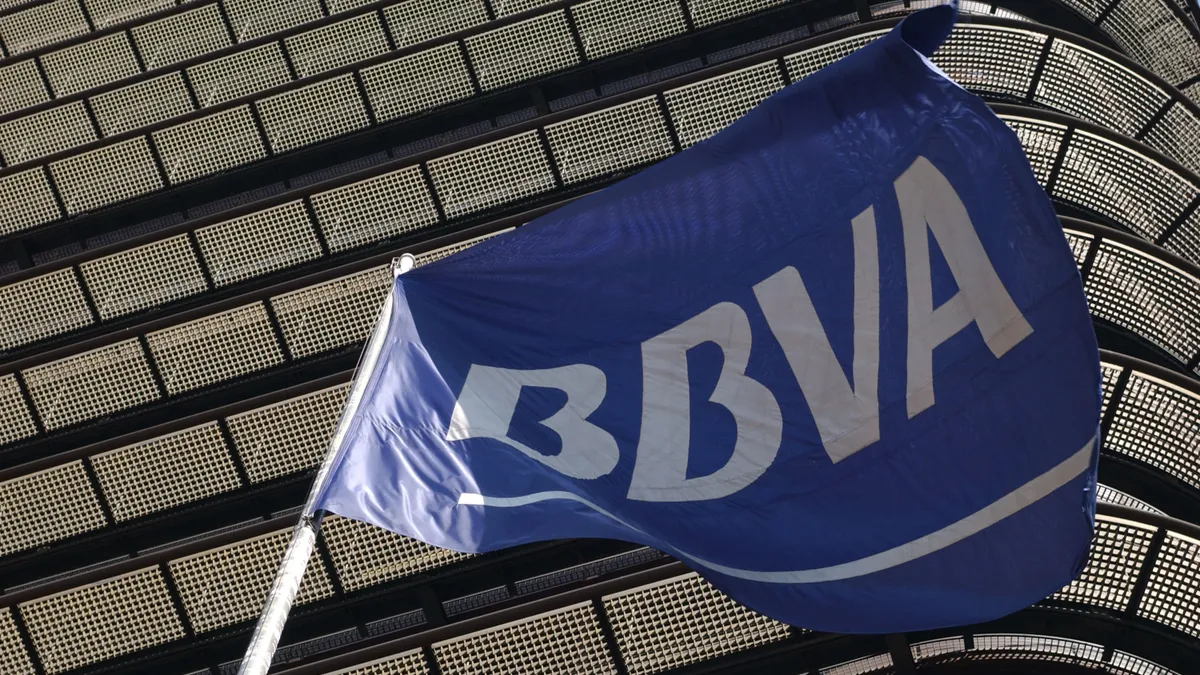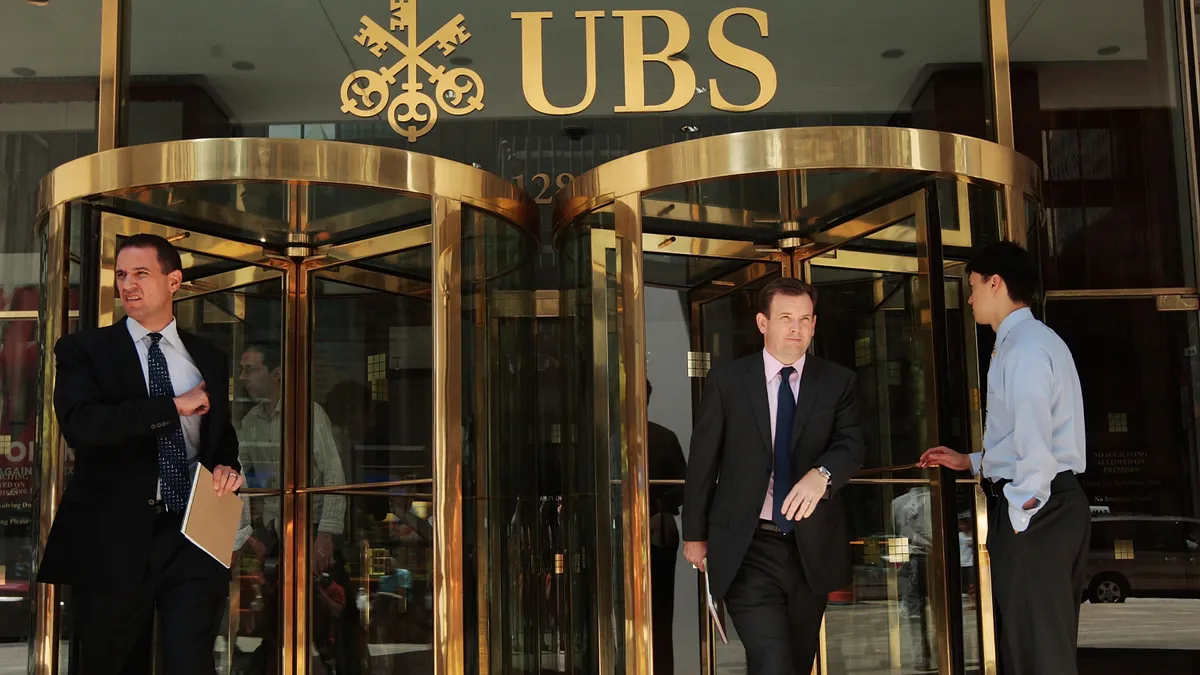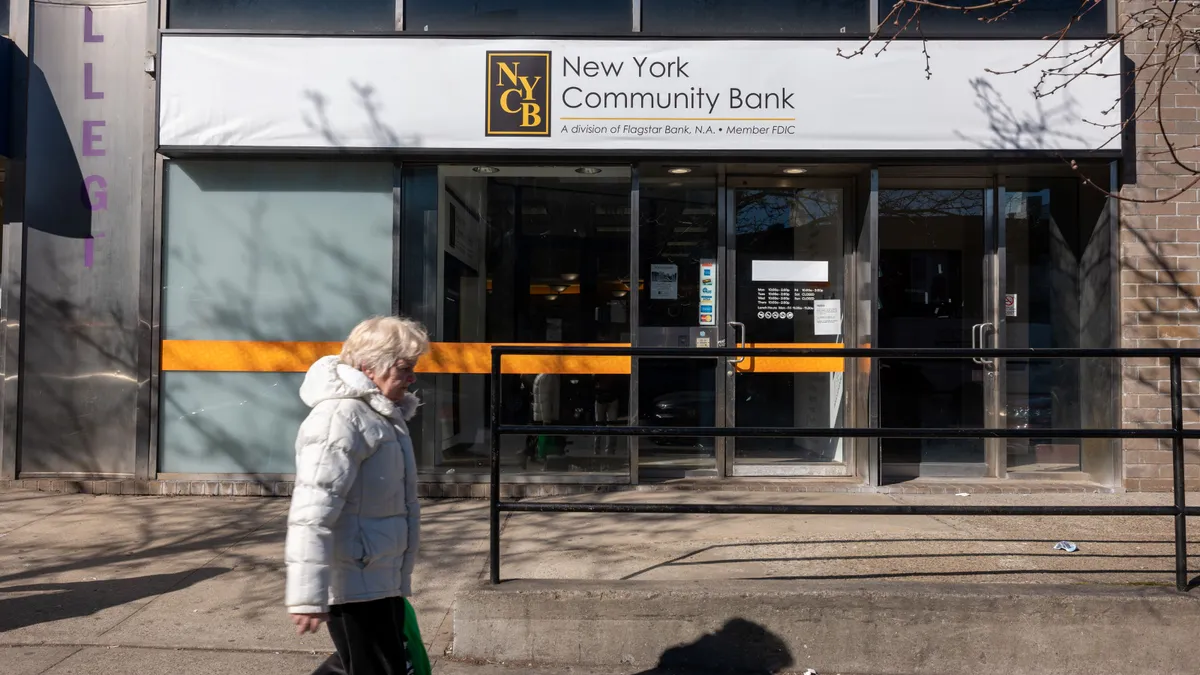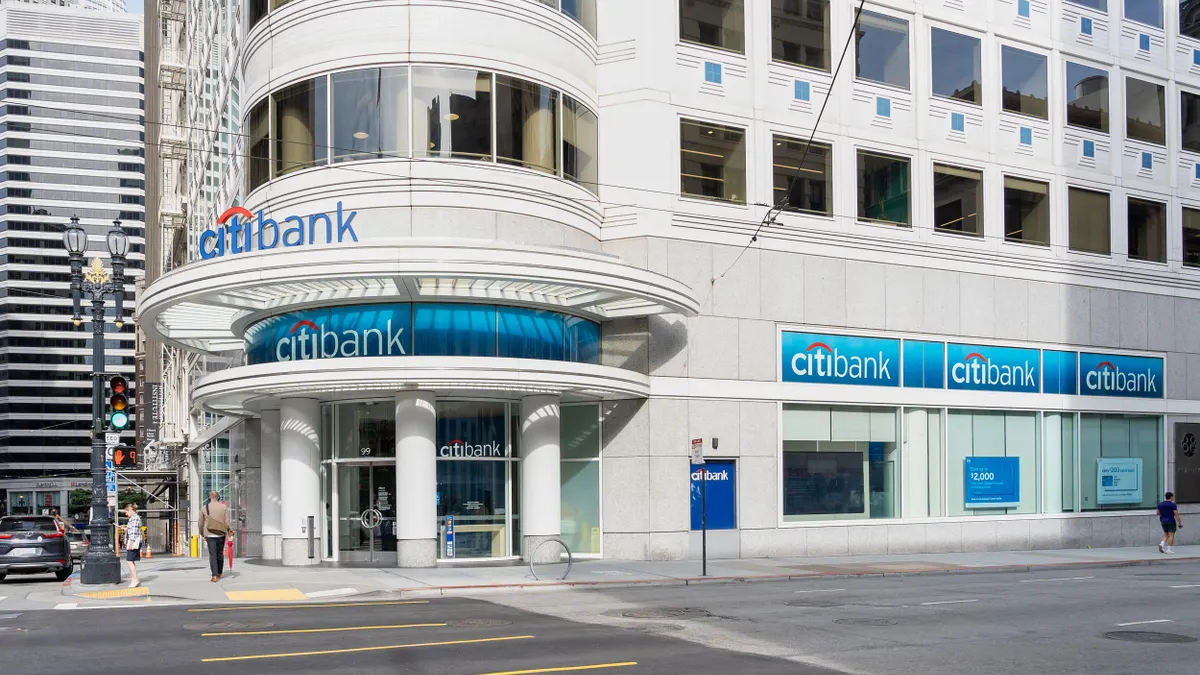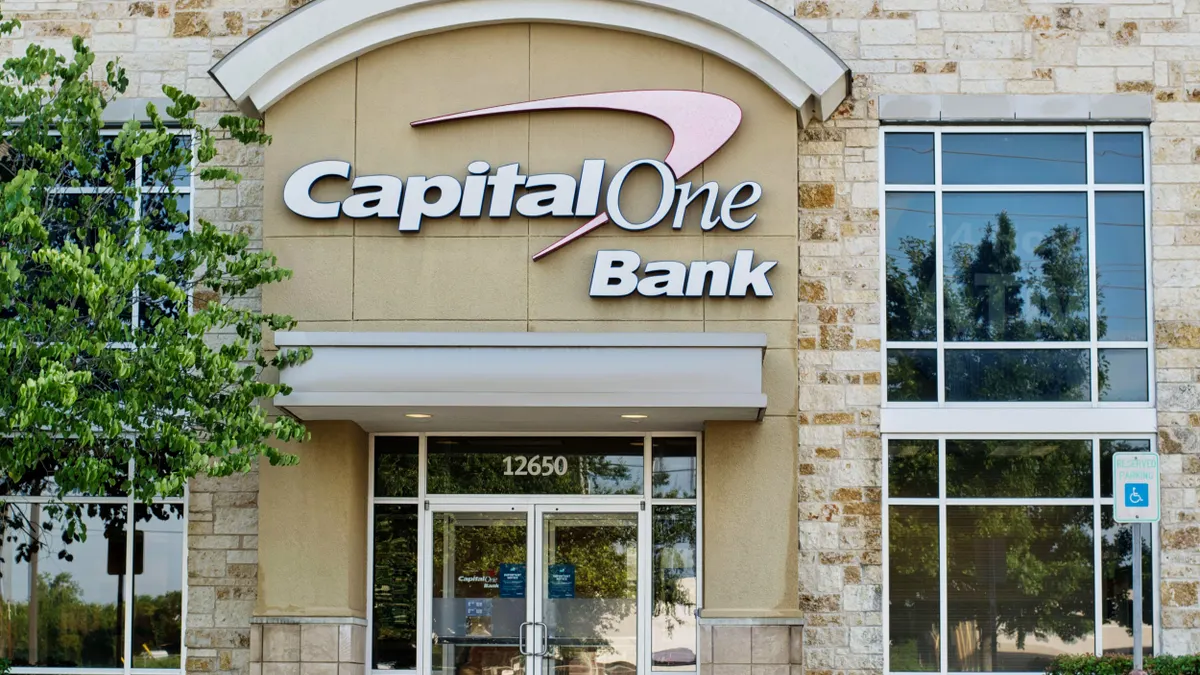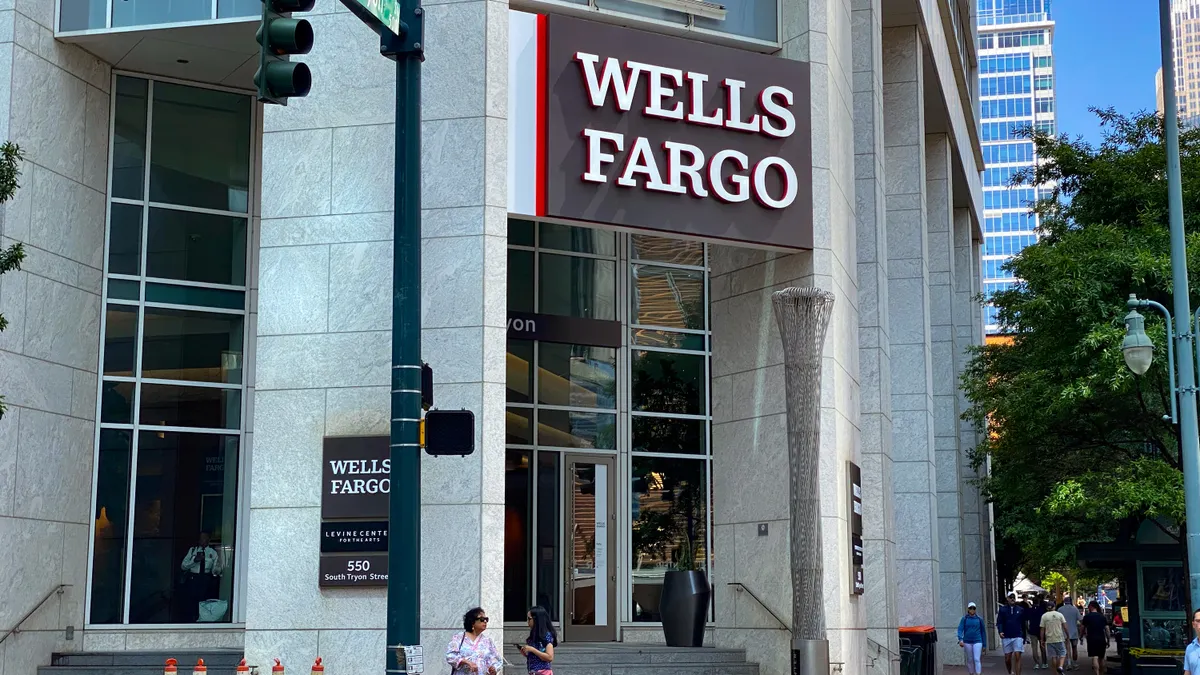One could look at any number of headlines from the past two weeks and argue that 2024 is actually just 2020 done over — this time, with less COVID (or we’re just immune to it now) and more hostility. (The hostility is explained later.)
Let’s not even consider that the U.S.’s November presidential election likely will be a face-off between the same two major-party candidates as in 2020. That parallel is too obvious.
In 2024, just as in 2020, HSBC is searching for its next CEO.
The Federal Deposit Insurance Corp. is again the subject of a report detailing pervasive sexual harassment. (The agency’s Office of the Inspector General published one in 2020.)
A top-10 American bank has named a woman president, putting her in line to succeed the CEO. (Citi named Jane Fraser president in October 2019, then named her CEO-in-waiting in September 2020. U.S. Bank’s appointment of Gunjan Kedia as president Friday was accompanied by much less “how-far-we’ve-come” analysis — which actually might show how far we’ve come. Thanks, Jane.)
Robinhood is again in the cross-hairs of the Securities and Exchange Commission. The company’s disclosure Monday that it may face an SEC lawsuit over its crypto unit comes four years after Robinhood paid $65 million to settle the agency’s investigation into payment for order flow.
Regulators are furiously trying to beat the political clock to issue a controversial update to standing policy. In 2020, that was the Office of the Comptroller of the Currency’s attempt to singlehandedly revamp the Community Reinvestment Act. This year’s stand-in is the Federal Reserve-led effort to increase banks’ capital requirements.
But are any of these the reason this columnist is saying we’re in a parallel 2020? No.
It’s because we’re watching the on-again/off-again courtship between BBVA and Sabadell.
BBVA went directly to Sabadell shareholders Thursday with its bid to buy the smaller Spanish rival for a sum that over the past week has oscillated between more than €12 billion and a shade under €11 billion.
The hostile-takeover approach — a first in Spanish banking since the 1980s, according to Bloomberg — comes days after Sabadell rejected a similar BBVA offer, saying it “significantly undervalued” Sabadell and its “standalone growth” prospects.
But this isn’t the first time the banks have failed to agree on a combination. Talks between BBVA and Sabadell fell apart in November 2020 over disagreements on the acquisition price and, reportedly, the composition of the bank’s board, post-merger. Sabadell wanted at least three seats on the board and for its chairman, Josep Oliu, to become a co-chairman of the combined bank, Bloomberg reported at the time.
For BBVA, the 2020 talks were overshadowed by another deal the bank made in the same month: the sale of its U.S. footprint to PNC.
Here’s where price comes into play: The 2020 offer Sabadell spurned valued the bank at €2.5 billion. Thursday’s offer, absent adjustment for inflation, is more than four times that. Sabadell, in 2020, wanted at least 12% of the combined entity if the transaction were all-stock. Thursday’s offer would give Sabadell a 16% stake in the combined bank, according to Reuters.
Spain’s economy minister, Carlos Cuerpo, said Thursday that the government has the final say on any deal between the banks. (Anyone present for last year’s UBS-Credit Suisse tie-up knows how crucial that is.)
Cuerpo said the deal could be bad for competition and would add uncertainty and volatility to Spain’s financial sector, Bloomberg reported.
Sabadell, for its part, asserted that some documentation BBVA provided breaks Spanish law regarding how companies can make takeover bids. Spain’s stock-market supervisor, CNMV, said it would explore Sabadell’s claim.
BBVA's executive chair, Carlos Torres Vila, said he was confident the government would appreciate the value of the proposed deal "once the dust settles,” according to Reuters. He noted, though, that the timing is not ideal, with the Spanish region of Catalonia, where Sabadell is based, holding elections Sunday, creating "a bit of a charged environment."
Perhaps one great irony in BBVA’s offer — this time, it is all-stock — is that the value of the deal, which Sabadell says is too little, continues to shrink by the day.
BBVA is offering Sabadell shareholders one BBVA share for every 4.83 Sabadell shares. That amounted to €2.26 per Sabadell share when the deal first became public last week. But since then, BBVA’s share price has fallen roughly 6%, while Sabadell’s has jumped about 5%.
Combining BBVA and Sabadell would create a bank with €1.08 trillion in assets, 100 million customers and a market capitalization around €69 billion. That would put BBVA within competitive striking distance of Spain’s largest bank, Santander, which counted €1.8 trillion in assets, 165 million customers and a €72 billion market capitalization as of March.
But both Santander and BBVA are stronger abroad than in Spain. With Sabadell in tow, BBVA would surpass Caixabank as Spain's biggest domestic lender and would have a loan market share of 22%.
BBVA also would see €850 million in cost savings from the deal.
But Sabadell has remained firm. It took the unusual step Wednesday of publishing a letter Torres sent to Oliu on Sunday, indicating BBVA could not come up on its price.
“I consider that it is very important that your board of directors knows that BBVA has no room to improve its economic terms,” Torres wrote.
Citi analysts disagreed.
“BBVA's capital position leaves room to improve the offer by adding cash, but management has struggled so far to convince investors of the transaction's merit," they said, according to Reuters, which noted BBVA counts €3.1 billion in excess capital.
A top-20 BBVA shareholder told the wire service there is “little sense in BBVA going hostile.”
“They do not need to buy Sabadell, and certainly not at the offered price and would risk franchise damage to themselves and Sabadell if they were to do so,” the shareholder said on condition of anonymity. “Discipline is always a virtue, especially in banking.”
After Sabadell rejected BBVA’s first recent bid, “we could have walked away and that would have been, probably, the most comfortable way forward,” Torres told the Financial Times. “[But] I’m not paid to take the comfortable route. My role is to cater for the value of our shareholders.
“There should be no regret that we attempted this even if it fails,” he told the publication. “Even the worst that can happen is something you can always live with.”



